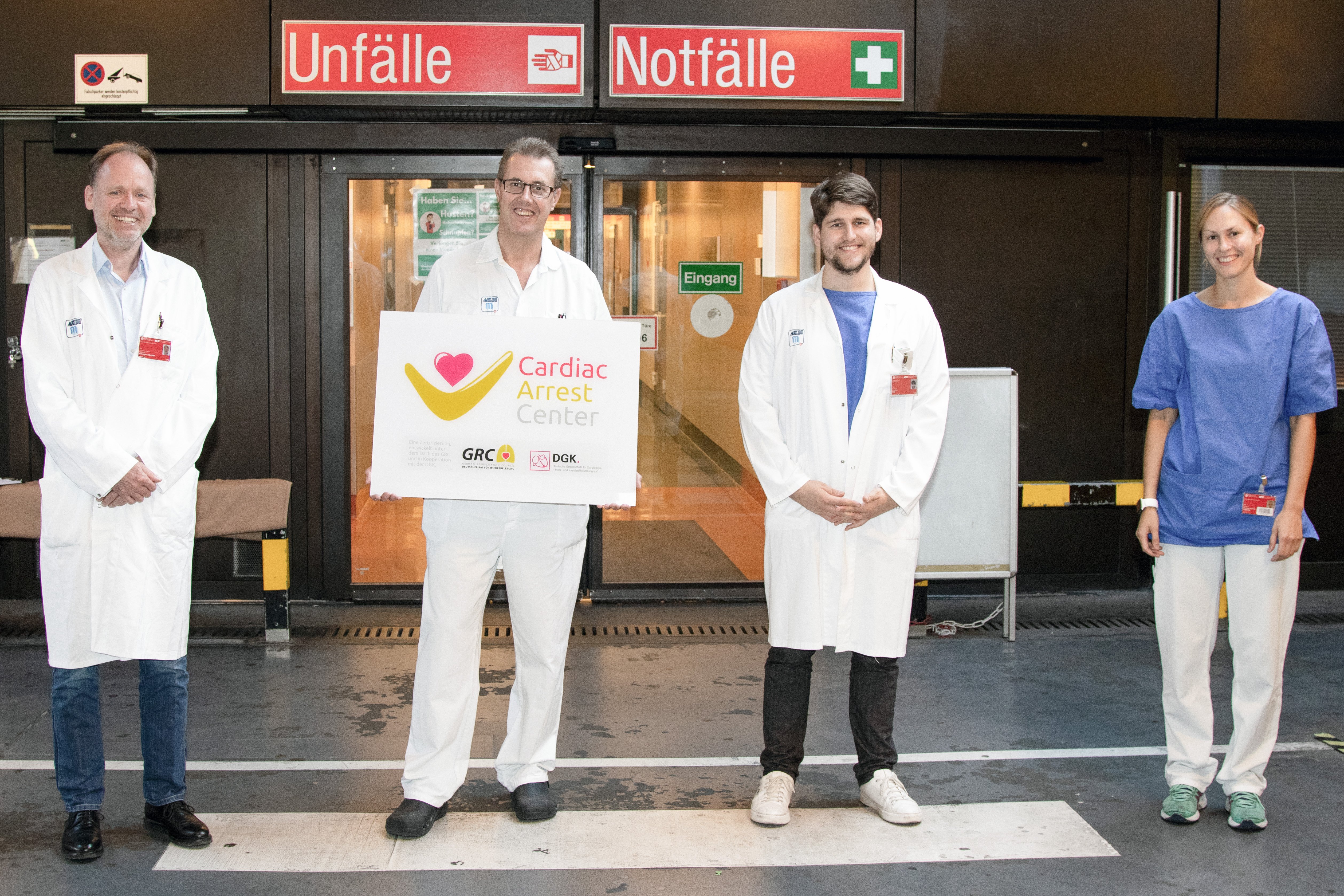The Vienna General Hospital is the first Austrian "Cardiac Arrest Center". The care of patients after cardiac arrest is challenging. Good preparation, a high level of expertise and exceptionally close
interdisciplinary cooperation are required to master this challenge in the best possible way. All these aspects are permanently re-evaluated and certified in the "Cardiac Arrest Center". The Department of Emergency Medicine takes a leading role within this process.

In cardiac arrest, every second counts. In addition to rapid on-site resuscitation, further treatment in a specialized clinic is crucial for the chances of survival. The Medical University of Vienna and Vienna General Hospital is the first clinic in Austria to be certified as a "Cardiac Arrest Center". This distinction certifies that the interdisciplinary team of doctors and nurses meet the highest possible quality standards in the care of patients with cardiac arrest on a 24 / 7 basis. This also includes extracorporeal resuscitation (eCPR).
The certification is awarded by the German Council for Resuscitation and is subject to strict criteria. All aspects of patient care are examined during the procedure. The prerequisite is that patients with cardiovascular arrest receive medical and nursing care according to standardized processes and procedures. For this, a suitable emergency and intensive care facility with an appropriately trained team must be available, cardiac catheterization and computed tomography must be possible around the clock, and treatment algorithms for various post-resuscitation care scenarios must be established.
"The emergency medical care of patients after cardiovascular arrest is one of our main focuses in patient care and scientific activities," said Michael Holzer of the University Department of Emergency Medicine. "The certification, like our daily work, is a team effort that we are very pleased about." In the Cardiac Arrest Center, specialists in emergency medicine, intensive care medicine, interventional cardiology, neurology and radiology work closely together.
The team of the University Department of Emergency Medicine cooperates closely with the Vienna Ambulance Service (MA 70), which is responsible for the preclinical emergency medical care of patients. Joint training and research projects ensure that emergency medical care in Vienna is provided at the highest scientific level. Quality management begins preclinically with the recording and processing of every single resuscitation in the Vienna Resuscitation Register. Through joint analyses, which are held quarterly, the high standard can be maintained, and the chain of survival constantly improved. "Resuscitation is teamwork. Everything has to happen in a coordinated and interlocking manner, from the first hand movement at the scene of the emergency, through the emergency room, to the intensive care unit. Our patients benefit from the excellent cooperation with the University Clinic for Emergency Medicine and we give them the best possible chance of survival," says Mario Krammel, Chief Physician of Berufsrettung Wien.
Leitungsteam
- Ao.Univ.Prof. Dr. Michael Holzer
Tel.: +43 1 40400 39535
E-Mail: michael.holzer@meduniwiwen.ac.at
- Dr. Christian Clodi
Tel.: +43 1 40400 39535
E-Mail: christian.clodi@meduniwien.ac.at
